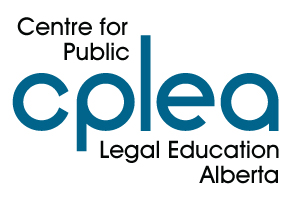This publication from Alberta Children and Youth Services (Prevention of Family Violence and Bullying Unit) explains the nature of abuse of persons with disabilites. It then describes what you can do if you realize that you are in an abusive relationship or you are concerned about a friend who may be in such a situation. (PDF – 15 pages)
If you are a person with a disability, or a caregiver or family member of someone with a disability, the following selection of resources may be of interest to you.
Gathered on this page are resources that were developed with you in mind. But there may be general resources that are also appropriate.
See the section Learn More About...or search the list of all legal topics to find other relevant information.
CPLEA Suggested Resources
Not sure where to begin finding answers to your questions. Get started with our suggested resources. See additional resources below for more information.
Alberta Resources
A publication of the Alberta Civil Liberties Research Centre.
The Alberta Supports Contact Centre is a new contact centre for general inquiries on income support, adult health benefits, child health benefits, child support services, and Assured Income for the Severely Handicapped. Advisors are available to provide general information on these programs and services, make referrals to community agencies and other government programs.
Catholic Social Services is a multi-function social service agency that serves people of all faiths and cultures throughout central Alberta. Founded in 1961, the agency has grown to deliver more than 100 programs.CSS is divided into Service and Program areas offered in five distinct Regions throughout central and northeast Alberta. Major Service areas include: Children, Family, and Community Service,Community Outreach and Disability Service, Immigration and Settlement Service, and Substance Abuse and Corrections Service.
If an adult’s ability to make personal decisions is impaired but they can make decisions with good support, co-decision-making may be an option. The adult who needs support doesn’t lose authority to make their own decisions. They share that authority with their co-decision-maker. Learn more about co-decision making.
The Government of Alberta's FSCD program uses a family-centred approach to provide parents with funding to access a range of supports and services that strengthen their ability to promote their child’s healthy growth and development. In addition, FSCD assists with some of the extraordinary costs of raising a child with a disability.
The Government of Alberta has many programs to help lower income Albertans. This guide can help find out what's available. Programs are listed in seven groups:Work and Work Skills, Financial, Housing, Legal Assistance, Health Expenses, Families with Children, and People with Disabilities. For each program, you will find an outline of what it does and where to go for information.This guide is up-to-date as of March 2005.
Inclusion Alberta (formerly Alberta Association for Community Living) is a family based, non-profit federation that advocates on behalf of children and adults with developmental disabilities and their families. Together, they share a dream of meaningful family life and community inclusion for individuals with developmental disabilities. As an advocacy organization they support families and individuals in their desire to be fully included in community life.
The Alberta Human Rights Act prohibits discrimination based on physical and mental disabilities.This information sheet is provides Albertans with information on the legal rights of people with mental or physical disabilities.
This primer, “Navigating the Justice System: A Guide for Self-Represented Litigants with Disabilities” is designed for people seeking justice system accommodations for a recognized disability, either physical or cognitive. The Primer is meant to be a practical legal guide to accommodation requests. This resource includes (often hard-to-find) sources for accommodation information, and registering complaints about failures to accommodate, in every province and territory (including email addresses, phone numbers, and web addresses).”
Decision-making options for individuals who need assistance are on a continuum, ranging from supported decision-making authorizations to full guardianship. The Adult Guardianship and Trusteeship Act (AGTA) sets out the necessary legal process for granting powers of substitute decision-making to a co-decision maker. A co-decision-maker is appointed by the Court to help an adult make decisions in some or all areas of personal decision-making, except financial matters. This publication describes how to apply for a co-decision-making order and what’s involved.
VAD is a cross disability, non-profit organization of and for people with disabilities. We are guided by the principles of Accessibility, Equity and Inclusion. We actively promote full participation in society and provide a voice for Albertans with disabilities.
Canada/Federal
CCD is a national human rights organization of people with disabilities working for an inclusive and accessible Canada. CCD's priorities include: disability-related supports; poverty alleviation; increased employment for persons with disabilities; promotion of human rights; ratification and implementation of the UN Convention on the Rights of Persons with Disabilities; technology developed according to the principles of universal design; and, air, rail, bus and marine transport that is accessible to persons with all types of disabilities. CCD seeks to achieve these priorities through law reform, litigation, public education and dialogue with key decision-makers.
This guide is for people with medical expenses or impairments in physical or mental functions and anyone supporting these people. It gives information on eligible medical expenses, services the CRA provides for people with impairments in physical or mental functions, as well as other information on income tax, excise tax, customs, and the goods and services tax/harmonized sales tax (GST/HST).
People with Disabilties is a web resource from the Government of Canada that offers access to a broad range of disability related information. This site provides access to services and information for persons with disabilities, family members, caregivers and all Canadians.
CPLEA Resources
A collection of LawNow articles on Disability and the Law. Learn about Accessibility Legislation across Canada.








Follow CPLEA